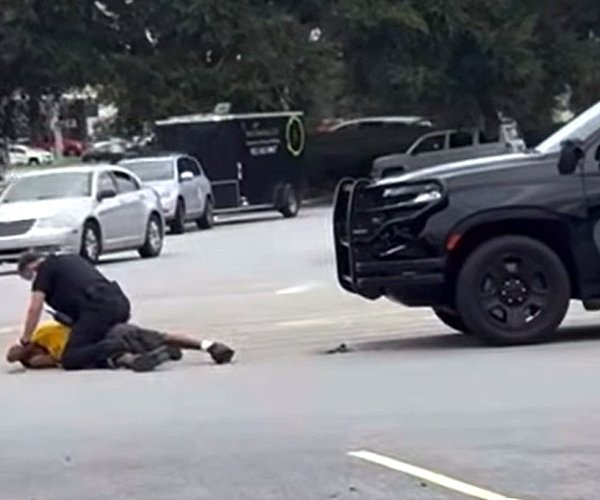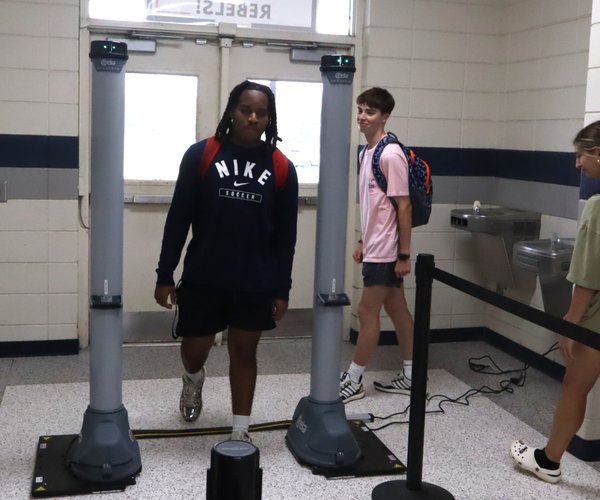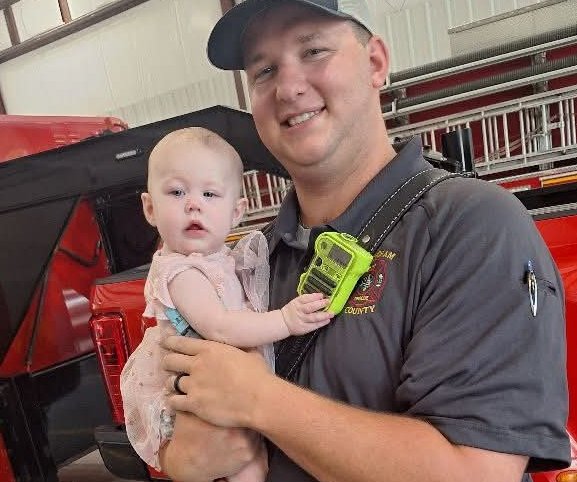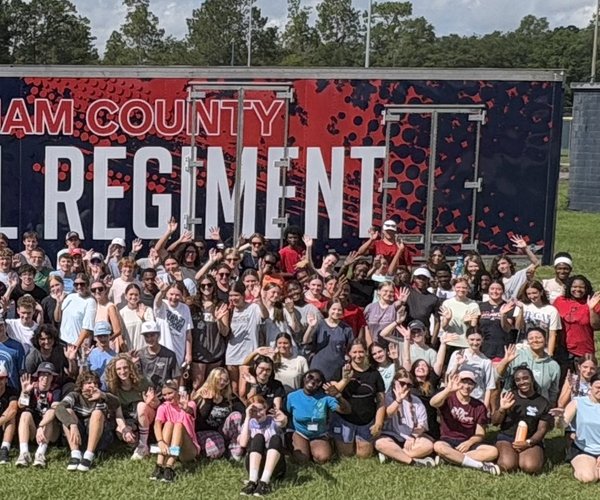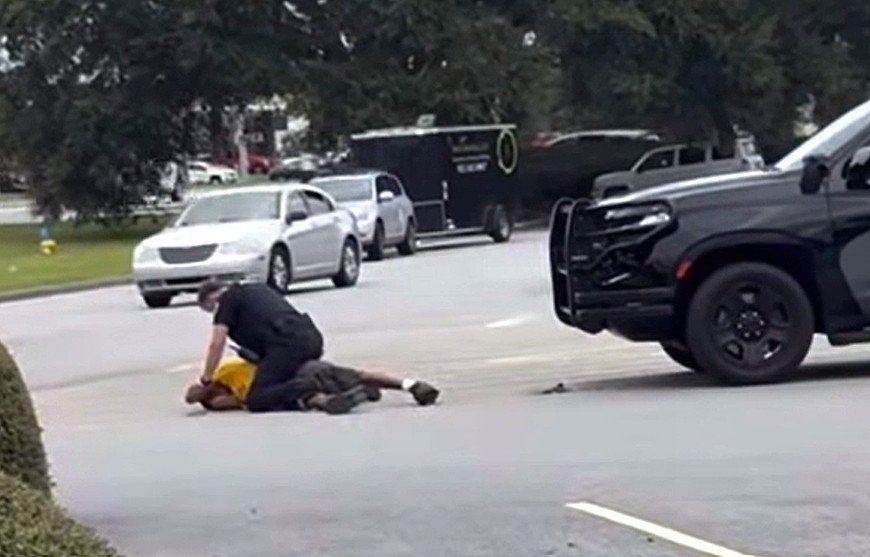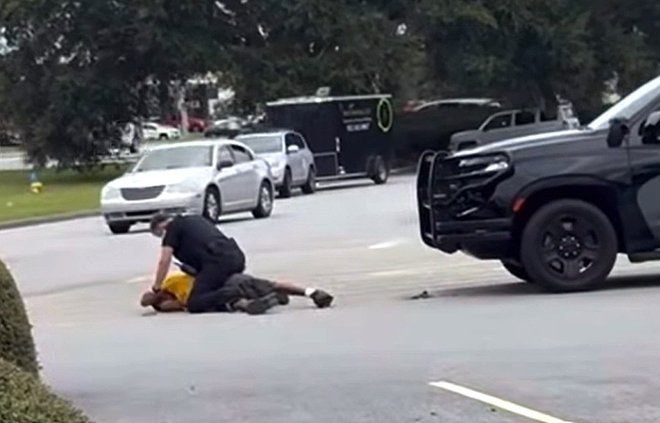Fellow county commissioners voted not to support the Facebook post of another Effingham County commissioner — and in doing so, offered a vote of support for the county administrator, Chairman Dusty Zeigler said.
The remaining commissioners voted 3-1, with Commissioner Vera Jones casting the lone opposing vote. Commissioner Phil Kieffer, whose Facebook posting last month initiated the discussion and the vote, and Commissioner Reggie Loper abstained from voting.
“It’s a vote of confidence in David and in Reggie,” Zeigler said. “I don’t think David has done anything wrong, and I don’t think Reggie has done anything wrong. David does an outstanding job.”
In his Facebook post, Kieffer said Crawley initiated a federal grant process to purchase the Ebenezer Crossing property in June. Loper has relatives who are part of the property’s ownership group and was involved in a three-way race to retain his commission seat. Kieffer wrote on his Facebook page that Crawley “threw Loper a bone … and he took it.” He also said that pressing the county to spend money “in these dire economic times to purchase swamp property would not have set well with the voters of his district.”
Loper sat in on executive session discussions about the property but did not take part in any of the talks, he said.
“We began superficial discussions in executive session if we had any interest in swamp property,” Kieffer said. “At the meeting there was little interest. When asked who owned the property, Mr. Crawley said it was a hunting club.”
Kieffer said Crawley provided a letter June 26 to the U.S. Fish and Wildlife Service that he had negotiated a price. The state Department of Natural Resources submitted a grant application to the U.S. Fish and Wildlife Service for its National Coastal Wetlands Grant Program.
“The state of Georgia identified the site and said they wanted to apply for a grant for that piece of property,” Crawley said. “They said they would need some time to get approval to move forward.”
Crawley said the only person he knew was part of the ownership group at that time was Keith Johnson.
“I had no idea that there were others involved and who they were,” he said. “I knew there was a corporation; I knew it was used for hunting.”
A limited liability corporation owns the property, and county attorney Eric Gotwalt told commissioners that discovering a LLC’s members is not always easily done.
“When the county is dealing with a LLC, I think there’s a lesson here,” he said. “The entire board and the staff need to be more cautious about finding out who is in the LLC. In the very beginnings of this process, I’m not sure if we could have known who were dealing with.”
Loper said he didn’t know he should not have been privy to any executive session discussions, even though he did not speak during the talks. He also said he did not know that Crawley had negotiated a selling price with his stepson.
“I knew most of the people who owned the property, yes,” he said. “If you knew two of my sons owned that property, if you thought I needed to step out of that executive session, I would have been glad to step out of that executive session and let y’all discuss it. Did your hear me discuss anything in executive session? I didn’t know I should have been out of there. If I had known, I would have left. When we went to vote, I stepped down.”
Kieffer said he discovered eventually one of the LLC’s members was his cousin, but he did not know that at the time the commissioners voted on the letter of commitment.
“The question was asked in executive session, who are the owners, and the answer was, a hunting club,” Jones said. “And it ends up being one of commissioner’s sons is one of the answers. If nothing else, it’s understandable where his questions come from.”
One of his questions about the matter, Kieffer said, was did Crawley negotiate a selling price with the property owners.
“I know at least one of the owners learned of the sale from a newspaper,” he said. “I believe all commissioners were put at risk by not knowing all the owners. At the first time the item was proposed, the grant application was not provided to us and it was probably 50 days old at that time.”
Loper continued to chafe at the insinuation of impropriety.
“You accused me of something. You accused me of meeting with David and coming up with this stuff. You haven’t told us nothing about why I am guilty of meeting with David Crawley.”
“Why did 50 days pass?” Kieffer asked. “That’s my question."
“I want to know what I had to do with it,” Loper responded.
Commissioner: No attempt to mislead
Commissioner Steve Mason said he doesn’t believe any collusion between Loper and Crawley existed because of the time between the initial letter to the U.S. Fish and Wildlife Service and the commissioners voting on the grant application.
“I’m looking for something that is hard fact that there was collusion, that this was done on purpose,” he said. “The accusation is that David Crawley, to help Reggie in his political campaign, intentionally misled and misinformed the board for 50 days until after the election and that he did it as a favor to Reggie. I think the issue at hand is you have to prove that happened.”
The state, according to Crawley and the DNR’s Sonny Emmert, identified the property as having potential for a federal grant and submitted the paperwork. Commissioners had been asked to vote in support of a letter of commitment for the grant application, but they couldn’t come to an agreement and the issue died.
“We allowed, with limited discussion, the path to be continued,” Mason said. “I will say this — until the last meeting or meeting before last before we voted is when I realized that the grant application had been submitted in full by the state.”
Crawley also defended himself against Kieffer’s comments and took the commissioners to task.
“I’m aggravated with comments that continue to be made out here,” Crawley said, “bombshells dropped about things. You sit up here and you won’t ask questions. We go into executive session about specific things — I write down a list, I go through what I can — there are always side conversations. People do not listen. People do not pay attention. This is a serious job. It is extremely serious. Start taking it that way. Why would you make accusations of corruption or collusion without any evidence?”
Mason added he did not believe the issue rose to the level of the other commissioners censuring Kieffer.
“But the burden of proof is on the accuser,” Mason said, “and we don’t have the proof of, I don’t want to use the word collusion. We don’t think there was intent from the administrator or one of the commissioners to mislead or misinform the board on this issue.”
Said Jones: “That would be something that would be hard to prove or disprove, based on appearances.”
Jones also suggested writing a letter to the state attorney general asking for guidance in such matters, and Gotwalt recommended that in the future, if commissioners had to recuse themselves from votes in public session, they should excuse themselves from any executive session discussion on that matter.


